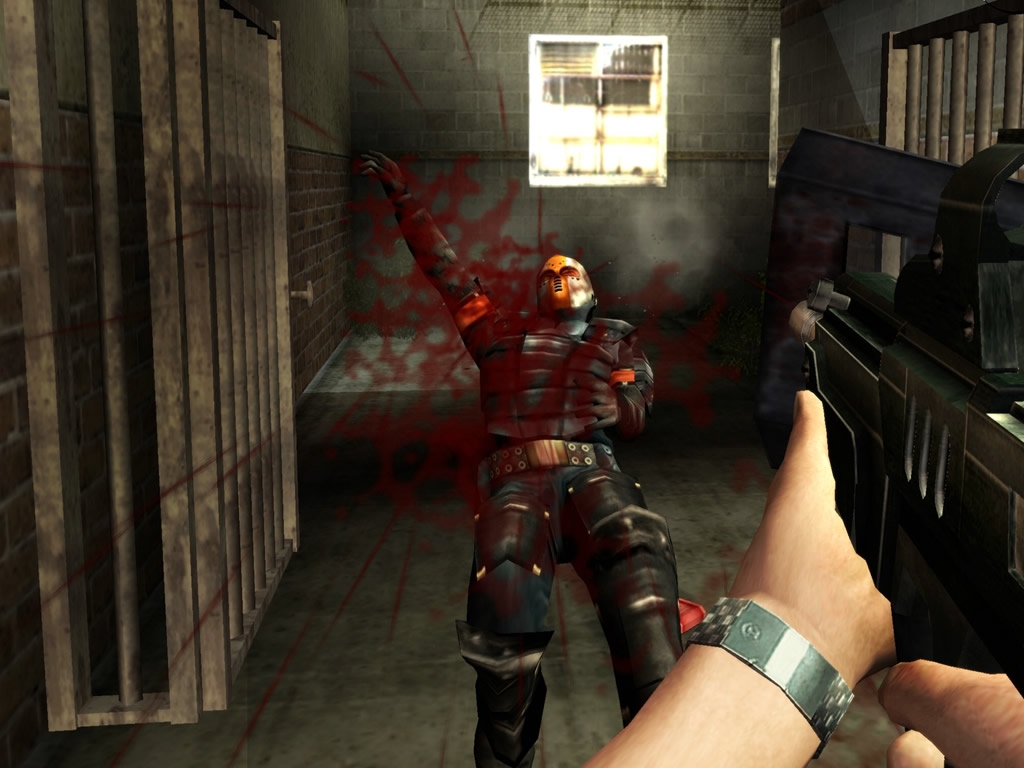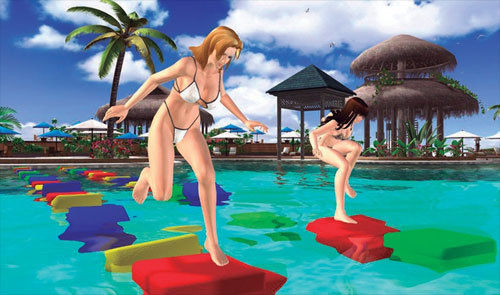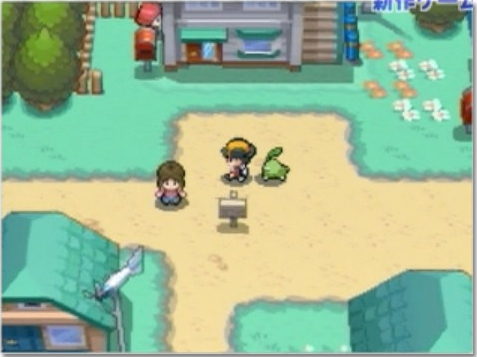Do You Want A Franchise With That?
Posted by
Nechrol
on
As you were most probably aware (thanks to the excellent title pun) I chose to cover game franchises. Everyone not living their life under a rock knows what a franchise is, look out your window; you can probably pick out a few McDonalds or Starbucks lurking within a stone’s throw of each other. In actuality the person under the rock probably has a Starbucks being built next to him as we speak.
.jpeg)
Living in London, when I’m out and about buying a jaunty hat or skin-tight leather pants I’m never in a place where I can’t either see a Starbucks or Subway. I wouldn’t be surprised if I came home one day and they’d set up in my bedroom closet.
So franchises are big business, they’re established and can open the door for a multitude of other forms of hawking a product. Dolls, books and pretty much anything you can imagine, I even had Super Mario pajamas when I was a kid. Hell I still have them, although over the years they have become significantly more ‘snug’.
Franchises act like a pillar in games, the first game being the foundation of ‘well the first was good so surely subsequent ones should be’. The gamer assumes they’ll be getting a new and improved version of the first game if it’s a sequel, that those companies will take all the best elements of the previous and turn it into something better.
It will always be hit and miss with developing a new game in a franchise. You have to have a development team that are able to evolve their ideas and designs with their product. No one likes a rehash of the first game, nor do they want something that is too detached from the first. It’s hard to be wowed by a sequel because of that first initial view of how good the original was. An exception to the rule being Half-Life 2 and others you may think of.
This can’t be wholly blamed on a lack of originality. Companies are afraid to deviate too much from the shadowed safety of the first hit for multiple reasons. They may have an evil company overlord threatening to violate them with every unsold unit if the game bombs. There is also the pressure to create a game that has to live up to all of the hype, such as the new Final Fantasy XIII for instance. The series has lived in the shadow of its predecessors since ‘X’ arrived on PS2. Fans want the same experience and style as the previous games but the company has merged, lost employees and needed to evolve with the time. However, that shouldn’t be a reason not to listen to your fan base instead of chugging away to a form of success. The success of the newer games came because they were Final Fantasy titles and people were buying the brand. I’d go out on a limb and say the games would not have been as well received if they were the first in an IP.

What games companies also have a tendency to do is create a sequel to a game that was created years ago. Instead of making a game that is in the same vein as the first, they decide to create one in a different species, like an elephant. I’m not completely sure what the point of this is. I can only imagine a company does it with an IP that was halfway good and use it to mask the games inadequacies. Putting a guy in a dress will not make him a woman; it takes years of therapy and elective surgery till he looks the part. While the title, much like ‘shim’ may look somewhat attractive on the outside, when you get home and take off the packaging you’ll be in for a disappointing surprise.
Look at some original games from yesteryear like Urban Chaos, Final Fight, Fighting Force, and Altered Beasts. I enjoyed all these games and they were great on their respective consoles. What the companies decided to do after they had attained a status (in my case) of wistful nostalgia was violate them in front of my eyes. The companies used the title of the game to sell something detached from the original. Games like Urban Chaos: Riot Response, Final Fight: Streetwise, Fighting Force 2 or Altered Beasts (PS2).
They used a ‘brand’ in this case to imbue a product with a certain expectation-that it will be good. In my case when I played these games it was like someone had given me a large shiny present and I had opened it in fervour only to find the recipient had taken a dump in it. I was not pleased.

Companies also use this trick not only to make a ‘sequel’ to a game but also to create spinoffs. The most established franchises have done this to death with many incarnations. Mario and Sonic have birthed many ‘special’ gaming nephews like Dr. Mario and Sonic Pinball. Dead or Alive have also thrown their hat (or more aptly, bikini) into the ring with DOA: Beach Volleyball and a new title named Paradise for the PSP. In Paradise you assume the role of a voyeuristic man hiding in a bush gawking a hot pixelated side-boob. I think the real challenge will be how I plan to play the game with one hand and pleasure myself with the other while riding the train to work.
There are obviously some exceptions to the rule and I can think of a few games franchises that have delivered and matured like a fine wine over the years. Ones that stand out for me would be Nippon Ichi’s turn-based-strategies (Disgae, Grim Grimoire etc) and the Tales series (Symphonia, Vesperia). The development teams of these games strike the right balance between the drooling fan-boy and evolving their game with each incarnation.
So franchises are what you make them to be, you can sell out and have your protagonist doing anything from saving the world to cracking open Pikachu’s head ala Super Smash Bros. Fans expect a games quality to increase in each version while keeping its identifiable core. Franchising equates to success which means money and some companies can value it over integrity.

There is also one resounding element we have to think about and perhaps it’s the most powerful. The ‘fan-boy’ factor. This is developer gold in gaming; we’re all guilty of being one. We all get misty-eyed and moist mouthed when the prospect of a new game comes out. Take Pokemon for example, they change tiny things each time but still people (myself included) go and purchase these games. There usually isn’t even that much deliberation because the power of the franchise surpasses all conscious thought. The second it’s released it’s like a trigger word for a Russian assassin. You don’t know anything is wrong until you’re standing in a hotel room with blood on your hands. The corpse of a Peruvian dictator on the floor with a fork stuck in his throat.
Or, in a games case, sat on your bed staring blankly into a screen, emaciated and covered in your own filth. It convinced you that you don’t need food or to relieve yourself, just Pokemon-just one more badge.
